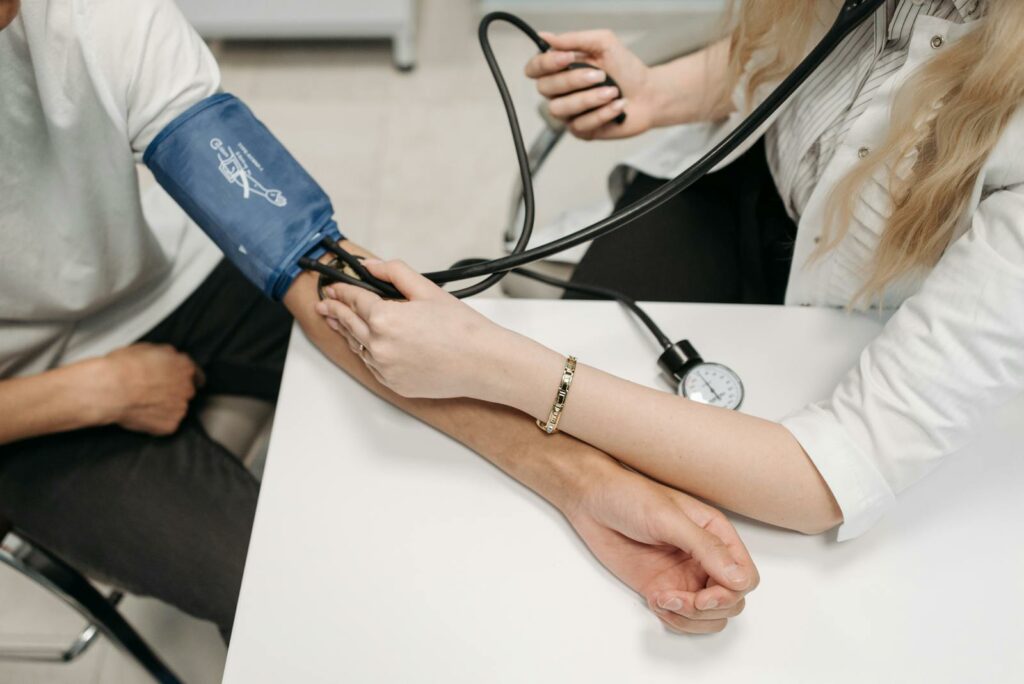Key Takeaway Of The Article
Alcohol withdrawal seizures are a severe symptom of alcohol withdrawal syndrome. Chronic alcohol consumption can disrupt brain chemistry, leading to potential seizures during the withdrawal stage. Recognizing alcohol seizure warning signs and getting immediate medical treatment, including the use of benzodiazepines and anticonvulsants, are very important. Professional detox programs can play a vital role in helping to safely manage alcohol withdrawal and prove the need for medical supervision to prevent complications and promote long-term recovery from alcohol dependence.
Alcohol withdrawal syndrome encompasses a range of symptoms that can occur when a person who has been drinking heavily for weeks, months, or even years stops drinking altogether or drastically reduces their alcohol consumption. An alcohol related seizure is a severe and potentially dangerous symptom that can occur because of this. These seizures typically happen within the first 48 hours after the last drink and are a result of the brain’s struggle to adjust to the absence of alcohol. Understanding and promptly addressing alcohol withdrawal seizures is crucial. If not identified immediately, they could escalate into more serious conditions, such as alcohol withdrawal delirium, also known as delirium tremens. Recognizing the signs of alcohol withdrawal seizure is the first step in getting proper treatment, making it so important for awareness and appropriate intervention.
What Causes Alcohol Withdrawal Seizures?

Chronic alcohol consumption can have a significant impact on the brain, altering its chemistry and function. One of the key effects of prolonged alcohol use is its interaction with the brain’s neurotransmitters, especially gamma-aminobutyric acid (GABA). GABA is crucial for calming the brain, working to decrease the activity of nerve cells throughout the nervous system. Alcohol enhances the effect of GABA, leading to the common sedative and calming effects that are often sought by drinkers. However, over time, the brain adjusts to the presence of alcohol by reducing its natural production of GABA and increasing the activity of neurotransmitters to help maintain a balance.
When alcohol consumption is suddenly reduced or stopped, the brain finds itself in a hyper-excitable state due to the lack of GABA’s calming effects and the increased activity of the excited neurotransmitters. This imbalance can lead to seizure due to alcohol withdrawal, which are convulsions that occur as a direct result of the brain trying to readjust to the absence of alcohol.
There are many risk factors for developing seizures during alcohol withdrawal, which include a history of heavy and prolonged drinking, previous experiences of withdrawal symptoms, a history of withdrawal seizures, and certain other medical conditions. Not everyone who stops drinking will experience a seizure, but anyone who has a history of heavy alcohol use is at a much higher risk. Recognizing these risk factors is very important in gaining an understanding of who is most vulnerable to alcohol-related seizure and seizures caused by alcohol withdrawal, which proves just how important it is to obtain medical supervision during the detoxification process.
Identifying Alcohol Withdrawal Seizures

Alcohol withdrawal seizures are a serious symptom of alcohol withdrawal syndrome, and recognizing them is crucial in order to get fast treatment. These seizures typically occur within the first 48 hours after the last drink and can range from mild to severe.
The alcohol withdrawal seizure symptoms include sudden loss of consciousness, convulsions, muscle stiffness, jerking movements, and confusion or disorientation afterward. It’s important to know that these seizures can happen without any prior history of epilepsy or other seizures, which can make them especially dangerous for anyone suffering from alcohol withdrawal.
Differentiating alcohol detox seizures from other types of seizures is very important. Unlike epileptic seizures, which might have a known history or other identifiable causes, alcohol withdrawal seizures are directly linked to a rapid decrease in alcohol consumption after a period of heavy drinking. They are often part of a greater set of withdrawal symptoms, possibly including tremors, agitation, and hallucinations.
Knowing when to get alcohol withdrawal seizure treatment is essential. Warning signs that mean immediate medical attention is needed include the occurrence of any detox seizure, alcohol withdrawal, grand mal seizures, prolonged seizures, a series of seizures without regaining full consciousness in between, and any seizure in someone without a previous diagnosis of epilepsy. Additionally, if the person experiencing seizures shows signs of severe confusion, extreme agitation, or high fever, it’s crucial to get professional medical assistance immediately, as these can indicate more severe complications of alcohol withdrawal as there is a link between alcoholic seizures and brain damage.
Alcohol Withdrawal Seizure Treatment Options

When someone experiences an alcohol withdrawal seizure, taking immediate action is essential to ensure their safety. The first step is to keep the person safe during the seizure by moving any harmful objects away from them, placing them on their side to help keep their airway clear and providing soft support under their head if possible. It’s crucial not to restrain them or put anything in their mouth. After the seizure subsides, getting medical help is imperative.
Alcohol seizure treatment involves a combination of medical supervision, detoxification, and medication. Detoxification is the initial phase, where the body is allowed to rid itself of alcohol under medical supervision. This process can help manage withdrawal symptoms in a safe environment, reducing the risk of further seizures.
Alcohol and seizure medications also play an important role in alcoholic seizure treatment and the prevention of further seizures. Alcohol and seizure medicines such as benzodiazepines are often the first line of defense because they are effective in reducing the risk of seizures and can help ease other withdrawal symptoms. Anticonvulsants may also be used, especially in cases where benzodiazepines are not recommended or when an alcohol induced seizure continues despite benzodiazepine treatment.
Complications and Risks
Untreated alcohol withdrawal seizures can lead to serious complications, including the risk of injury during a seizure, and in some severe cases, may even be life-threatening. These seizures are proof that there is a significant disruption in brain activity, which, if not properly managed, can cause lasting damage. One of the most concerning long-term effects of repeated alcoholic seizures is brain damage. The intense, abnormal electrical activity during a seizure can affect brain function over time and can potentially lead to cognitive impairments and other neurological issues.
Plus, individuals who experience repeated alcohol withdrawal seizures are at an increased risk of developing epilepsy. Epilepsy is a disorder that is characterized by recurrent, unprovoked seizures, and having seizures triggered by alcohol withdrawal can make the brain more susceptible to seizures in the future, even if there is no recent alcohol use.
Preventing Alcohol Withdrawal Seizures
Preventing alcohol and seizures from withdrawal begins with a careful and detailed approach to reducing alcohol intake, especially for those people who have a history of heavy drinking. Safe alcohol withdrawal is best achieved under medical supervision, where healthcare professionals can closely monitor symptoms and provide the appropriate treatments and interventions. This supervision during detoxification is of the highest importance as seizures due to alcohol withdrawal can trigger even more severe withdrawal symptoms if not managed properly.
Medical supervision ensures that the detox process is gradual and controlled, minimizing the risk of severe withdrawal symptoms. Healthcare professionals may prescribe medications to ease withdrawal symptoms and prevent seizures. This can help manage the immediate risks associated with alcohol withdrawal and can also set the foundation for a safer long-term recovery.
Preventative measures to avoid future seizures include ongoing support and treatment for alcohol dependence, lifestyle changes that promote better overall health, and strict adherence to a treatment plan that has been carefully developed by experienced healthcare professionals. By addressing the root cause of alcohol misuse and maintaining a commitment to sobriety, individuals can significantly reduce the risk of experiencing seizures due to alcohol withdrawal. It’s essential to seek professional help not only to prevent alcohol withdrawal seizures but also to start out on a healthier path toward an alcohol-free life.
Life After Alcohol Withdrawal Seizures
Recovery and rehabilitation after experiencing alcohol withdrawal seizures involve more than just overcoming the immediate effects. Building a strong support system of family, friends, and healthcare professionals is crucial for a complete recovery without relapse. Incorporating lifestyle changes and taking part in therapies can make a significant difference in long-term recovery and can help individuals manage stress, improve mental health, and maintain their sobriety.
Recognizing alcohol seizure disorder and getting alcohol related seizures treatment is crucial for anyone who is experiencing or is at risk of having this serious condition. Immediate medical intervention can help manage symptoms effectively and can go a long way toward preventing serious, long-term complications. It’s important to get help as quickly as possible. With the right support from loved ones and a team of professionals, full recovery is possible.
Sources
Jesse S, Bråthen G, Ferrara M, et al. Alcohol withdrawal syndrome: mechanisms, manifestations, and management. Acta Neurologica Scandinavica. 2016;135(1):4-16. doi:10.1111/ane.12671
Hammond CJ, Niciu MJ, Drew S, Arias AJ. Anticonvulsants for the treatment of alcohol withdrawal syndrome and alcohol use disorders. CNS Drugs. 2015;29(4):293-311. doi:10.1007/s40263-015-0240-4
Professional CCM. Delirium Tremens. Cleveland Clinic. https://my.clevelandclinic.org/health/diseases/25052-delirium-tremens
The Basics: Defining How Much Alcohol is Too Much | National Institute on Alcohol Abuse and Alcoholism (NIAAA). Published February 27, 2024. https://www.niaaa.nih.gov/health-professionals-communities/core-resource-on-alcohol/basics-defining-how-much-alcohol-too-much#pub-toc4
Professional CCM. Gamma-Aminobutyric Acid (GABA). Cleveland Clinic. https://my.clevelandclinic.org/health/articles/22857-gamma-aminobutyric-acid-gaba
Saitz R. Introduction to alcohol withdrawal. PubMed Central (PMC). Published 1998. https://www.ncbi.nlm.nih.gov/pmc/articles/PMC6761824/
Sissons B. Can alcohol trigger seizures? Published February 8, 2023. https://www.medicalnewstoday.com/articles/alcohol-seizure
Witkiewitz K, Litten RZ, Leggio L. Advances in the science and treatment of alcohol use disorder. Science Advances. 2019;5(9). doi:10.1126/sciadv.aax4043
Livingston NA, Ameral V, Hocking E, Leviyah X, Timko C. Interventions to Improve Post-Detoxification Treatment Engagement and Alcohol Recovery: Systematic Review of Intervention Types and Effectiveness. Alcohol and Alcoholism. 2021;57(1):136-150. doi:10.1093/alcalc/agab021







